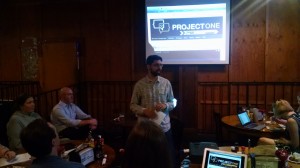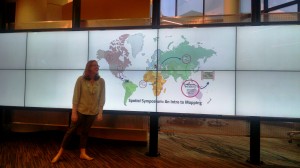This Monday was the first Digital Pedagogy Meetup of the school year. It was held at Manuel’s Tavern in the back room (though it’s really not as clandestine as it sounds), and is part of a larger atlanta studies community now called “Atlanta Connected Learning.”
Spearheaded by innovative faculty from several Georgia schools in the atlanta area, including but not limited to GSU, SPSU, Agnes Scott, and GTech, Atlanta Connected Learning is going to be an umbrella community that will eventually house several different educational and innovative meet ups designed to encourage the kind of innovation that is already happening in this community, but gather more followers and minds to take on all the projects to be tackled in the Georgia school systems.
Digital Pedagogy Meetups will continue to feature 2 sets of speakers who will talk, in a casual setting, about the projects they are working on to promote lifelong learning and a journey into the future of pedagogy.
Check out atlcl.org for more developments, as the site will be developing and changing a lot over the coming semester.
Get on board, if you aren’t already.


